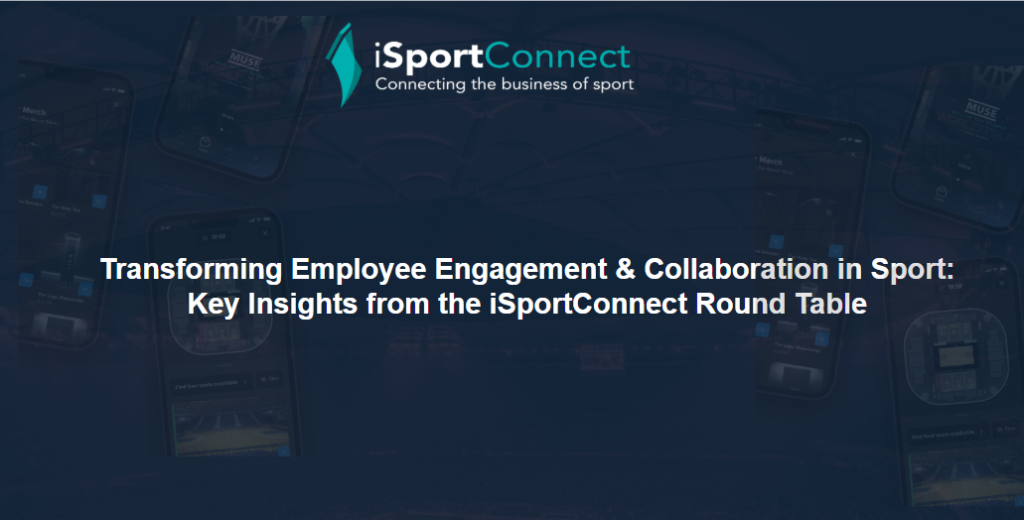Transforming Employee Engagement & Collaboration in Sport: Key Insights from the iSportConnect Round Table
1 day ago
In the ever-evolving landscape of sports organisations, employee engagement and collaboration remain crucial for sustained success. On March 27, 2025, senior HR and communications professionals from leading sports rights owners in football, motorsport, cricket, and sailing gathered in London for an exclusive round table discussion on “Transforming Employee Engagement & Collaboration in Sport.” The session was co-moderated by Ben Elder, Regional Vice President, EMEA at Simpplr, and Dominic Quantrill, Founding Partner of The Quantrill Partnership.
The conversation provided deep insights into the challenges and opportunities surrounding AI integration, organisational culture, and governance in fostering an engaged and collaborative workforce.
Key Insights from the Round Table
Fragmented Systems Hinder Productivity
A major challenge identified was the inefficiency caused by fragmented communication tools and information silos. Research indicates that employees spend approximately 19% of their workday searching for information, while 94% of CEOs acknowledge that enhancing the employee experience directly impacts net profit. The consensus was clear—organisations must streamline digital platforms to enable seamless collaboration and improved productivity.
AI in Communication: Finding the Right Balance
AI-powered tools are increasingly shaping internal communication strategies. While automation has shown promise in drafting messages and managing crises, participants emphasised the importance of maintaining a balance between AI-driven automation and human oversight to preserve the authenticity and nuance of communication.
AI’s Impact on Job Roles
AI’s integration into business processes—particularly in recruitment and project management—has sparked discussions around job role evolution. Organisations must reassess traditional job descriptions and explore how AI can complement human expertise rather than replace it.
Data Security & Governance
The rise of AI-driven recruitment and data management has raised concerns about data security and compliance. Participants agreed that sports organisations must develop clear governance frameworks to mitigate risks associated with AI handling sensitive employee and organisational data, especially in industries governed by strict regulations like GDPR.
Defining Metrics for Success
Measuring the effectiveness of communication and engagement strategies requires a data-driven approach. Participants underscored the importance of leveraging real-time analytics to assess the impact of campaigns, improve decision-making, and ensure alignment with broader organisational goals.
Organisational Culture: The Catalyst for Success
Culture emerged as a critical factor in driving employee engagement. A supportive and inclusive workplace fosters high performance, strengthens community engagement, and enhances organisational resilience—especially during times of uncertainty.
Adaptability in Crisis Communication
Reflections on external disruptions, such as the pandemic, highlighted the need for agile communication strategies. Sports organisations must be equipped to navigate evolving audience expectations and external pressures while safeguarding brand loyalty and organisational stability.
The Future of Employee Engagement in Sport
As the discussion concluded, a key takeaway emerged: sports organisations must strike a delicate balance between leveraging AI and preserving human insight. AI can undoubtedly enhance efficiency, but empathy, strategic thinking, and cultural integrity remain irreplaceable in fostering a thriving workplace.
Ben Elder, EVP of Sales at Simpplr, summarised the opportunity AI presents to sports organisations:
“With employees spending nearly a fifth of their workday searching for information, the need for intuitive, AI-powered solutions has never been greater. At Simpplr, we’re helping leading sports organisations streamline communication, enhance engagement, and ultimately boost productivity—because a connected workforce isn’t just a happier workforce, it’s a more profitable one.”
The session reinforced that by integrating responsible AI practices, establishing clear governance frameworks, and nurturing a strong workplace culture, sports organisations can drive meaningful engagement, collaboration, and long-term success.
Want to learn more? Reach out to Ben Elder via email or connect with him on Linkedin to explore how AI is transforming employee engagement and productivity in leading sports organisations.



